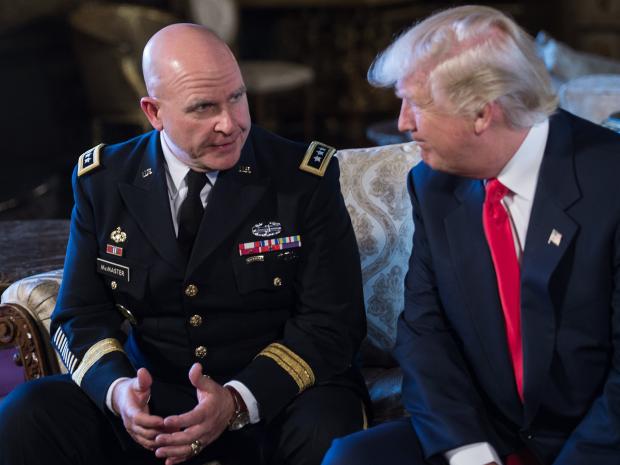
Recently, McMaster’s reason and education led him to tell his staff that Muslims who commit terrorist acts are perverting their religion, in sharp contrast to other senior Trump advisers who promote a more black and white approach. At a meeting of the staff of the National Security Council, he opined that the label “radical Islamic terrorism” was not helpful because terrorists are “un-Islamic”.
But what does McMaster think concerning another major threat perhaps not on the minds of most Americans—that of Chinese expansionism in the East and South China Seas eventually leading to a Third World War? On China, McMaster seems to take the same reasonable and educated approach, if we take his comments at face value which he made during a military strategy forum hosted by the Center for Strategic and International Studies in May 2016.
During that forum, McMaster drew parallels between Russia’s activities on its borders with similar Chinese activities in the South China Sea, declaring China was “challenging U.S. interests at the far reaches of American power” in an effort to “expand territory and expand their influence at the expense of U.S. interests and the security of our partners in the region”—comparing China’s assertiveness as “militarily analogous to what Russia’s done in Ukraine”.
McMaster characterized China’s land grab in the South China Sea as an effort to “project power outward from land into the maritime and aerospace domains, to restrict freedom of movement and action in those domains, and to—and to secure Chinese influence across those domains”. McMaster argues that China, in the same way Russia has established air supremacy over Ukraine from the ground, will use “cyberattacks, information warfare, [and] a sophisticated economic effort to undermine the post-World War II economic order in the region”.
The general concluded by stating that while the Chinese have “engaged in the largest theft of intellectual property in history”, implying that some of the thefts benefit the Chinese military, the U.S. military currently maintains a technological advantage, and will need to invest in “joint synergy” and “cohesive well-trained teams” to adapt technology to the U.S. military in the future to maintain its competitive advantage. No doubt the Chinese will continue to also pursue advanced technologies for their military in their own fashion, and McMaster is reasonable in focusing on technology as a primary concern in maintaining national security as well as projecting power overseas.
With seasoned and informed generals such as McMaster and Mattis on board, the Trump administration should have a fighting chance at keeping the U.S. military at the top of its game.